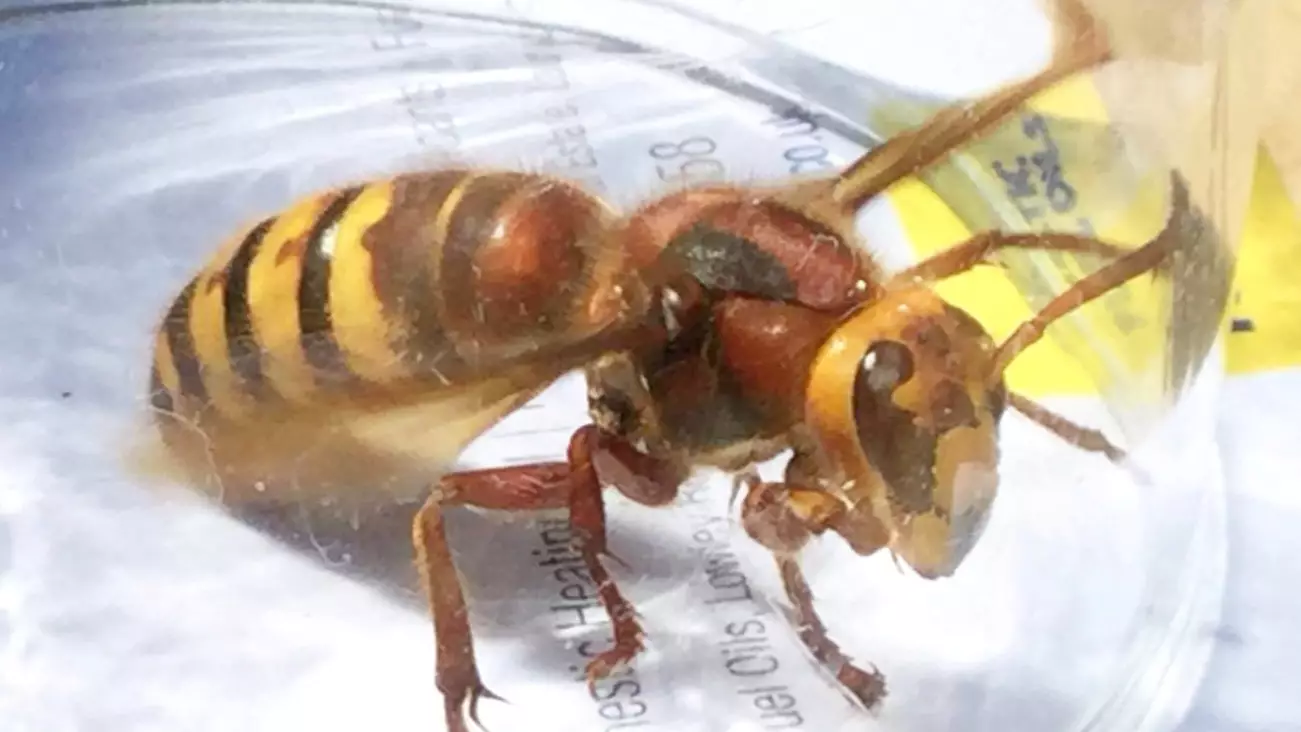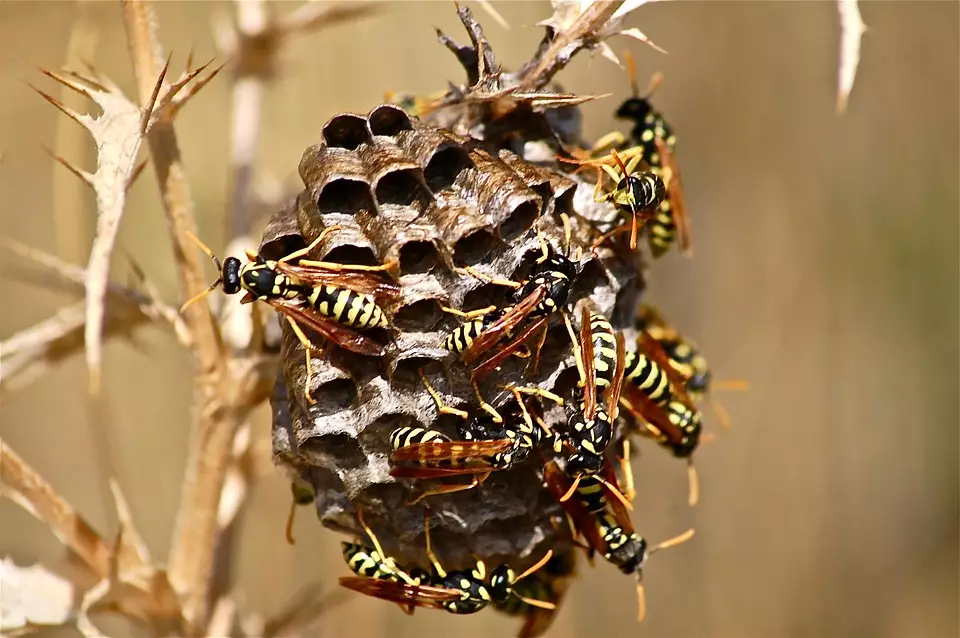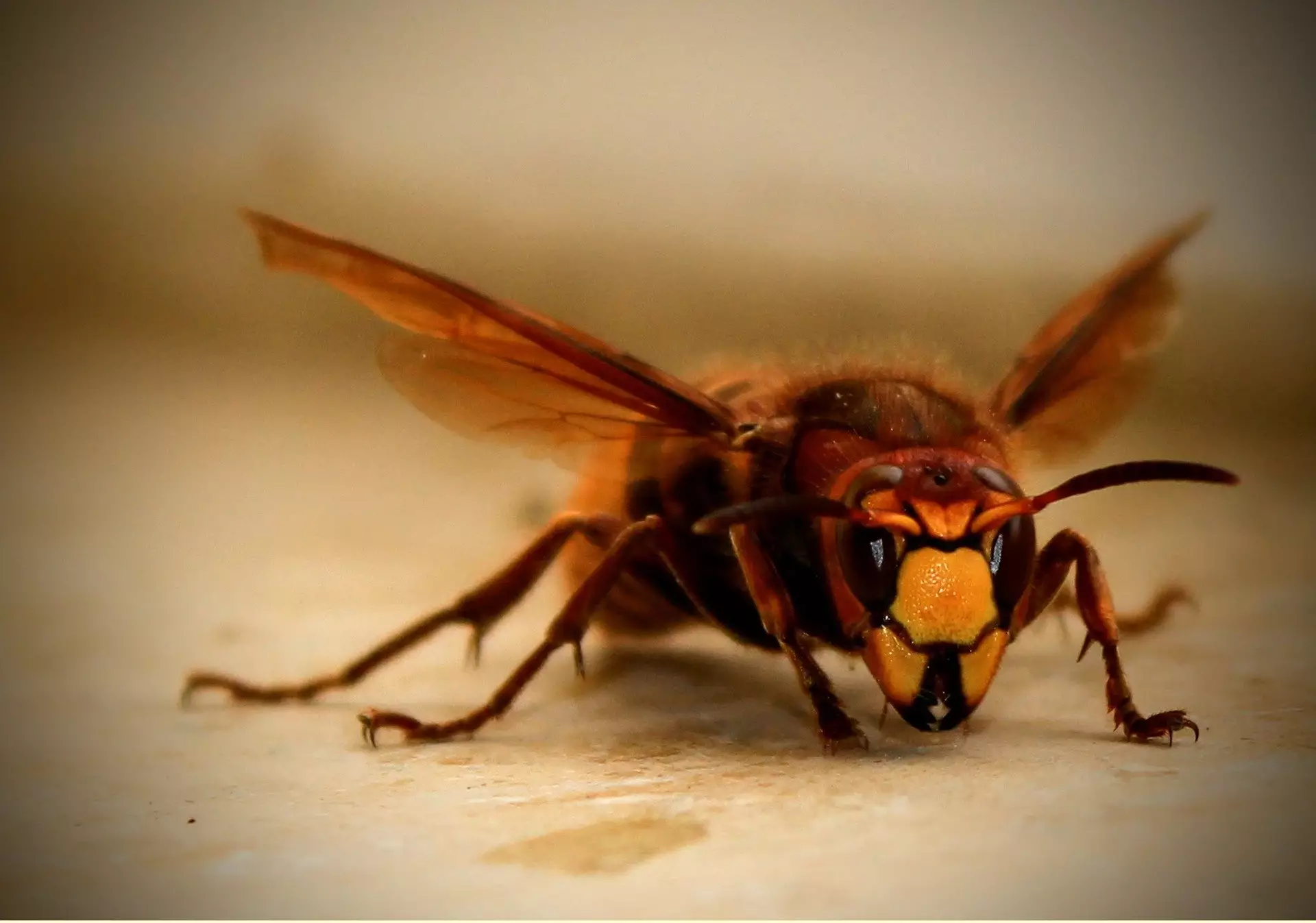
Have you ever heard of 'Bee-Day'? Us neither, but according to experts, it's taking place next month and is the day that Britain is set to be invaded by killer Asian hornets.
Apparently recent wet weather has created a 'perfect breeding ground' for the deadly insects, raising fears they will arrive in record numbers on British shores. And while we're told that 7th September is the day they will start to arrive, they could stay around for weeks.
Eek!
Advert
The species began to spread through Europe in 2004 after arriving in the south of France inside a freight ship and are known for their powerful sting.

Playing 'havoc' with the UK's bee population, they were spotted in the British Isles on the Channel Island of Jersey in late 2016 and since then, the number of nests had been growing annually. After years of establishing themselves on Jersey and Guernsey, the battleground has now shifted to Southern England.
To help stop the spread, calls have been made for a 'people's army' to help fight off the impending invasion of the killer hornets onto mainland Britain, with a beekeepers association saying the public's help is now desperately needed to destroy nests before they are able to multiply.
Advert
Lynne Ingram, co-ordinator of Somerset's Asian hornet action teams and a member of Somerset Beekeepers said the best weapon the public had in the battle was their smart phones.

She said: "See it, snap it and send it! We need the public's help to save our bees from the Asian hornet which has been wreaking havoc through Europe since 2004."
Lynne, a beekeeper with 30 honeybee colonies near Bridgwater, Somerset, said Asian hornet week - September 7-13 - was a key moment in the battle, adding that: "Now is the time to spot the hornets so that their nests can be destroyed before they multiply.
Advert
"If you see a hornet take a photo, send it to us and we'll do the rest. Or use the official Asian hornet watch app and report it.
"The arrival of the hornet in Britain is especially bad news for bees - a favourite food source - and a single hornet can completely devastate a beehive, devouring up to 60 at a time."
Well we can't let that happen.

Research Fellow and behavioural ecologist Dr Peter Kennedy also said: "Asian hornets are anticipated to be a significant mortality factor influencing a broad spectrum of insects, including honeybees, on top of existing stressors (habitat loss, disease, pollution, climate change, etc.) that already impact our beleaguered native pollinator community.
Advert
"Worldwide, invasive non-native species are recognised as being a serious threat to biodiversity, and it is consequently important that we encourage the public to be informed, vigilant and proactive in reporting the presence of Asian hornets and other invasive species."
The hornets are able to kill with one sting for people who have an allergy, while they also pose a threat to the environment and native species, so keep your eyes open guys!
Featured Image Credit: SWNS